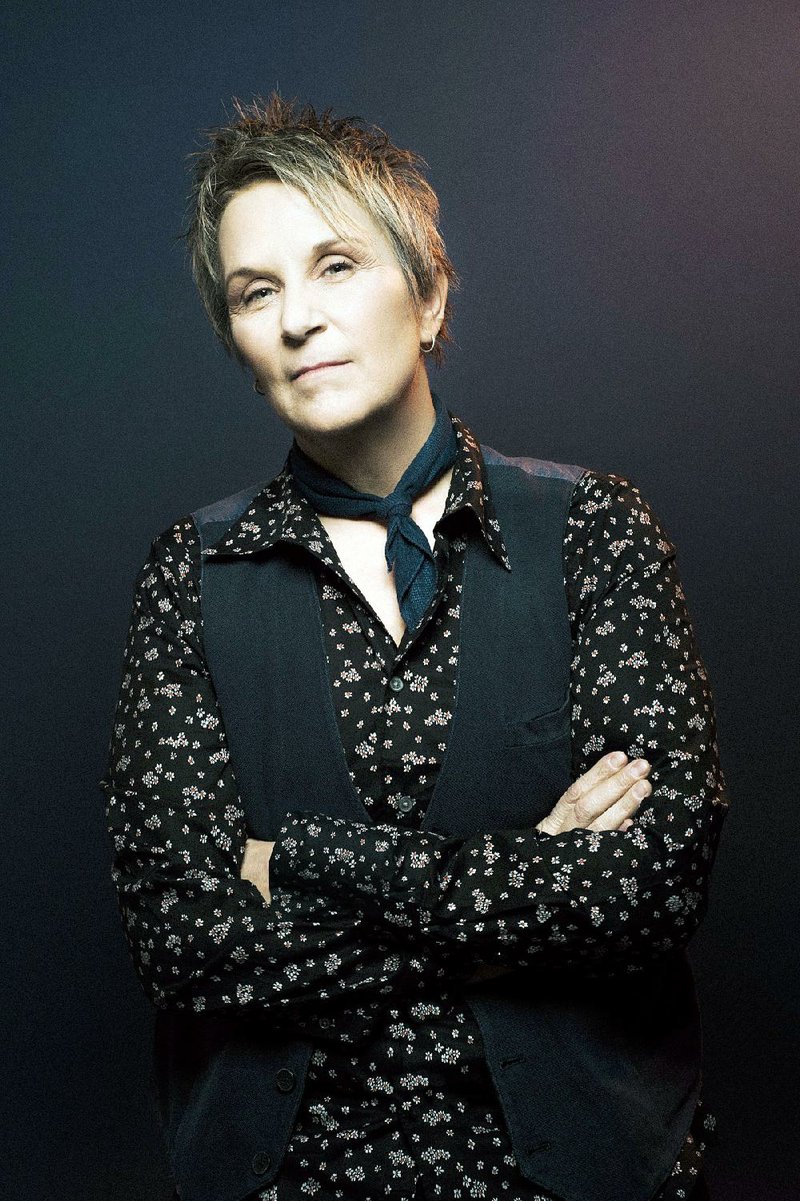Acclaimed singer/songwriter Mary Gauthier brings her honest and powerful voice to The Auditorium in Eureka Springs at 7 p.m. Saturday. Her new album and most important work to date, "Rifles & Rosary Beads," was released Jan. 26. Of it, the Los Angeles Times says: "You'll be hard-pressed to hear a more powerfully moving work this year -- or any other." Gauthier took a few minutes to answer these questions for 'SUP ahead of her visit.
Q. What is your first memory of falling in love with music/performing and what made you want to pursue it?
FAQ
Mary Gauthier
WHEN — 7 p.m. Saturday
WHERE — The Auditorium in Eureka Springs
COST — $20
INFO — 253-7788, theaud.org
BONUS — Guests Molly Healey Trio and Route 358 will also perform.
A. I fell in love with songwriting first, after I got sober, in 1990. The art form is so challenging, and unforgiving. It became an obsession, a driving force in my soul, to learn how to write songs in a way that connected with truth and the human soul. I realized at some point that if my songs were going to ever get heard, I would have to sing them. It was not my plan in the beginning, but eventually, I learned how to perform my compositions. It has been a process, and I am still learning every single day.
Q. Tell me about the process for "Rifles and Rosary Beads." How did working with veterans come about? What compelled you to want to tell these stories?
A. I co-wrote these songs though the nonprofit SongwritingWith:Soldiers program. I was invited to do this work by the founder, Darden Smith. It was a good fit. I fell in love with the process. I am not a veteran, but my own story has some harrowing moments in it, as well. I learned in my own songs to be able to put a difficult story into a song. I can sit with someone who has been through a difficult experience and not be afraid, and I can listen and take that experience and use it as a way of making art. Taking something difficult and turning it into something beautiful helps move trauma out of the brain in ways that are quite profound. So I think that's what I'm on earth to do, is to tell the hard stories and show the resilience of human spirit. These stories in the end, even the most harrowing ones, in the end are about love.
Q. That is an incredible thing to be a part of. How has this experience changed you as an artist and a writer? How do you think your work with and for the veterans will affect your craft moving forward?
A. People are amazed at the soldiers' stories. I've learned that when I apply this art form, (songwriting) to not only to my own struggle, but to someone else's struggle, to help articulate it, it has the power to transform it. The power of empathy lives in the fact that while most of us are not soldiers and have not seen combat, a song can help us to feel the effects of it through putting us into the skin of someone who has. That's a huge thing, especially given the fact that we are in an empathy crisis, divided, fighting with each other, entrenched in deeply held beliefs and opinions. These songs connect hearts, and by-pass opinions. When a human soul has been poured into a song, inevitably the listener will go, "Oh, my god, me, too." The listener gets this resonance that tells us, we are not different than that person in that song. And that's the opposite of trauma. Trauma is feeling utterly alone and unseen and unloved and connecting to empathy is feeling seen and known and loved. This project, and these stories and songs are way bigger than me.
NAN What's Up on 11/02/2018

